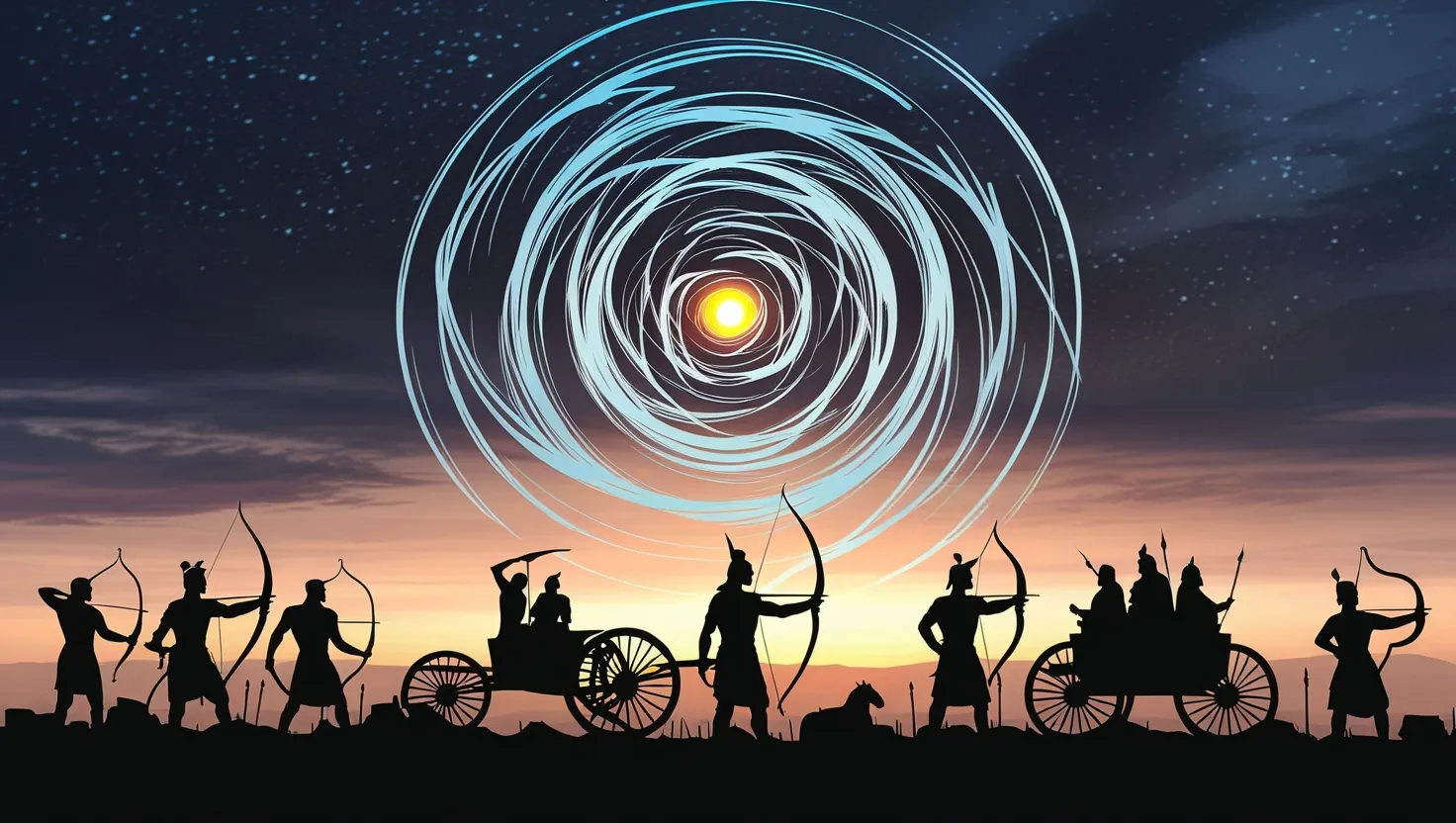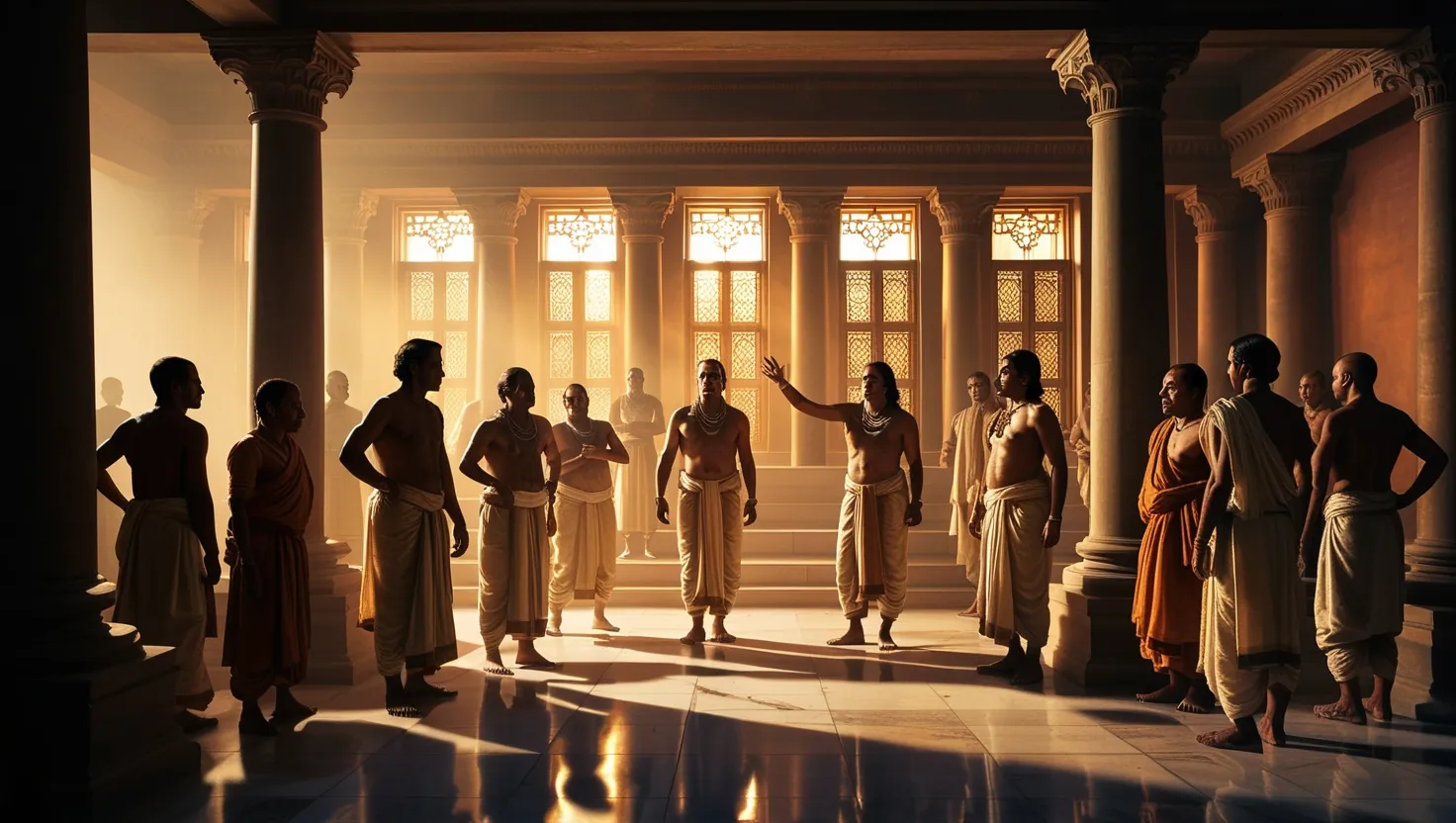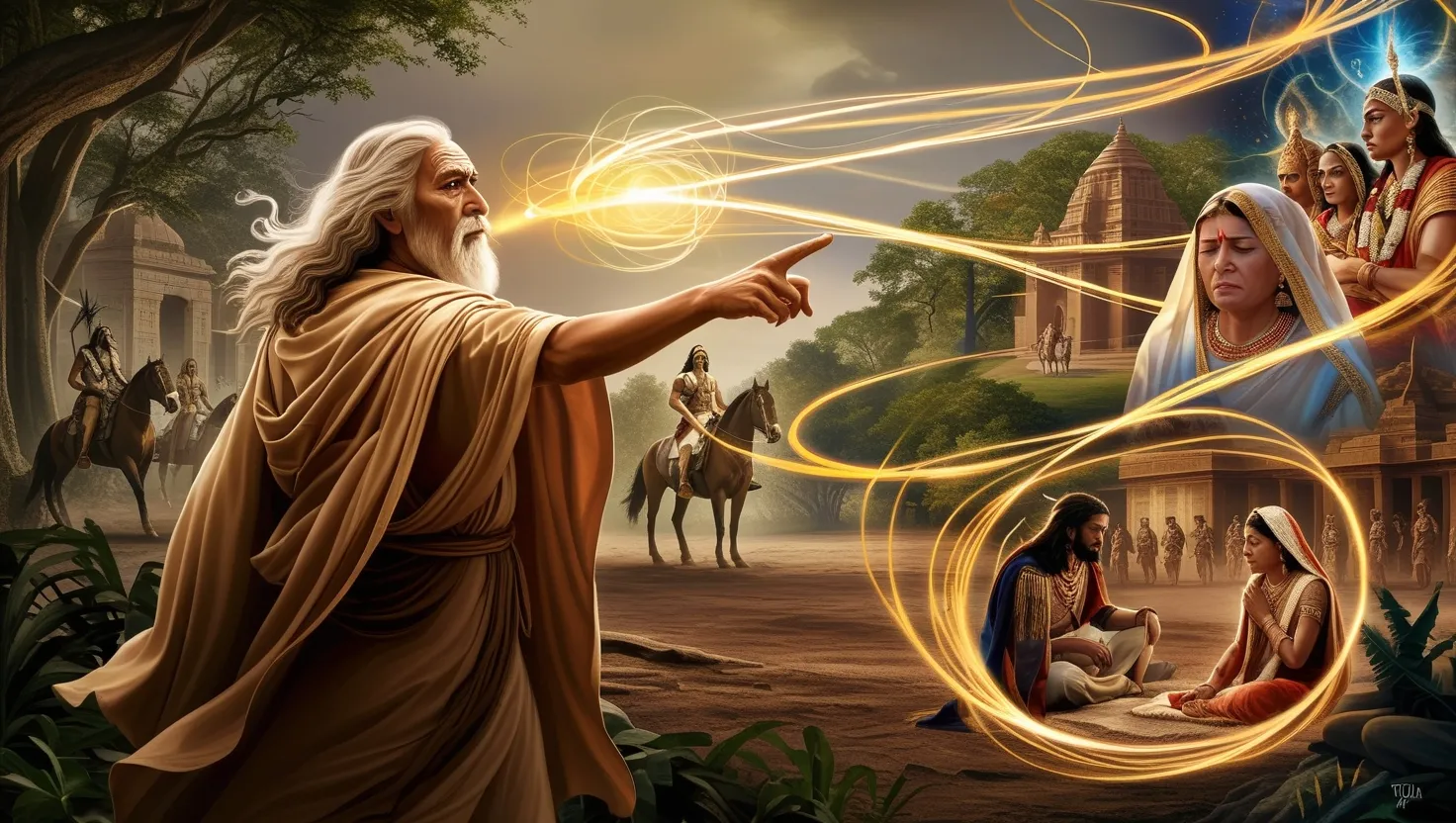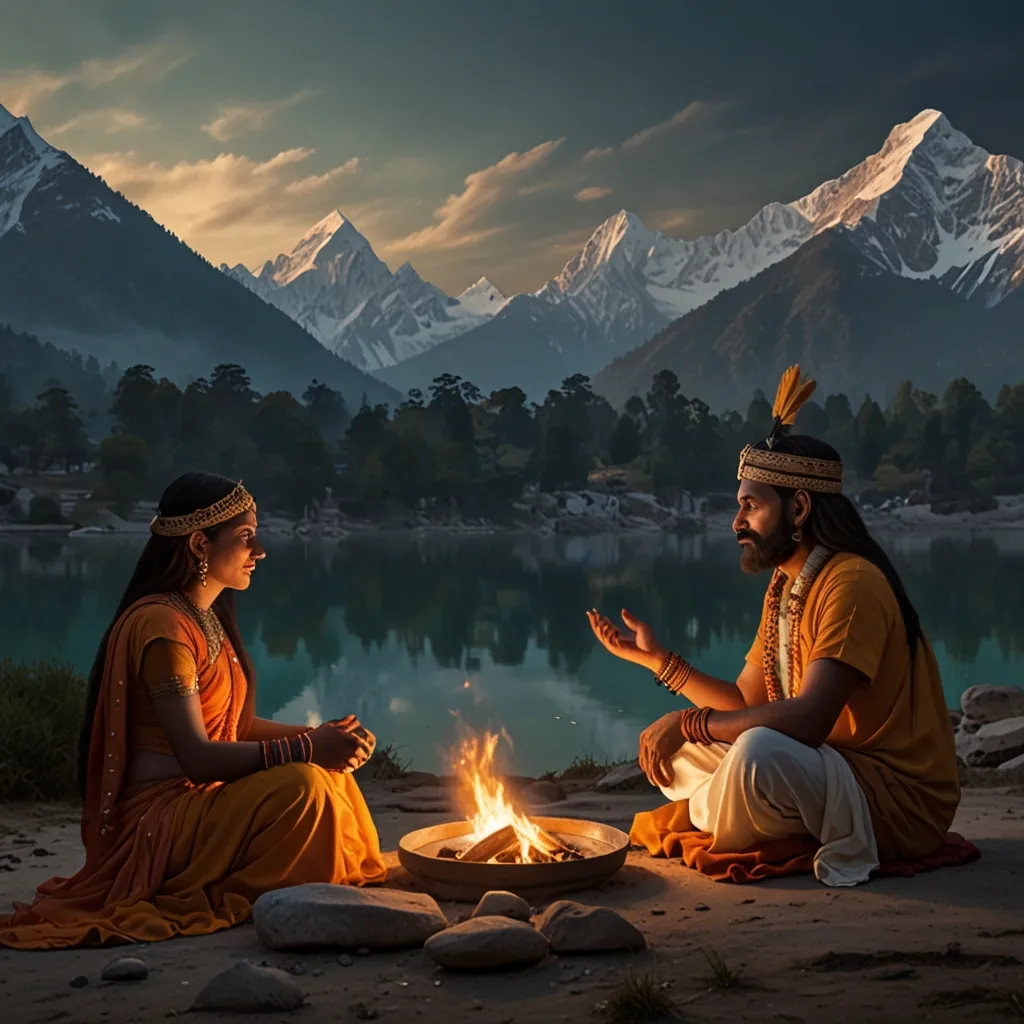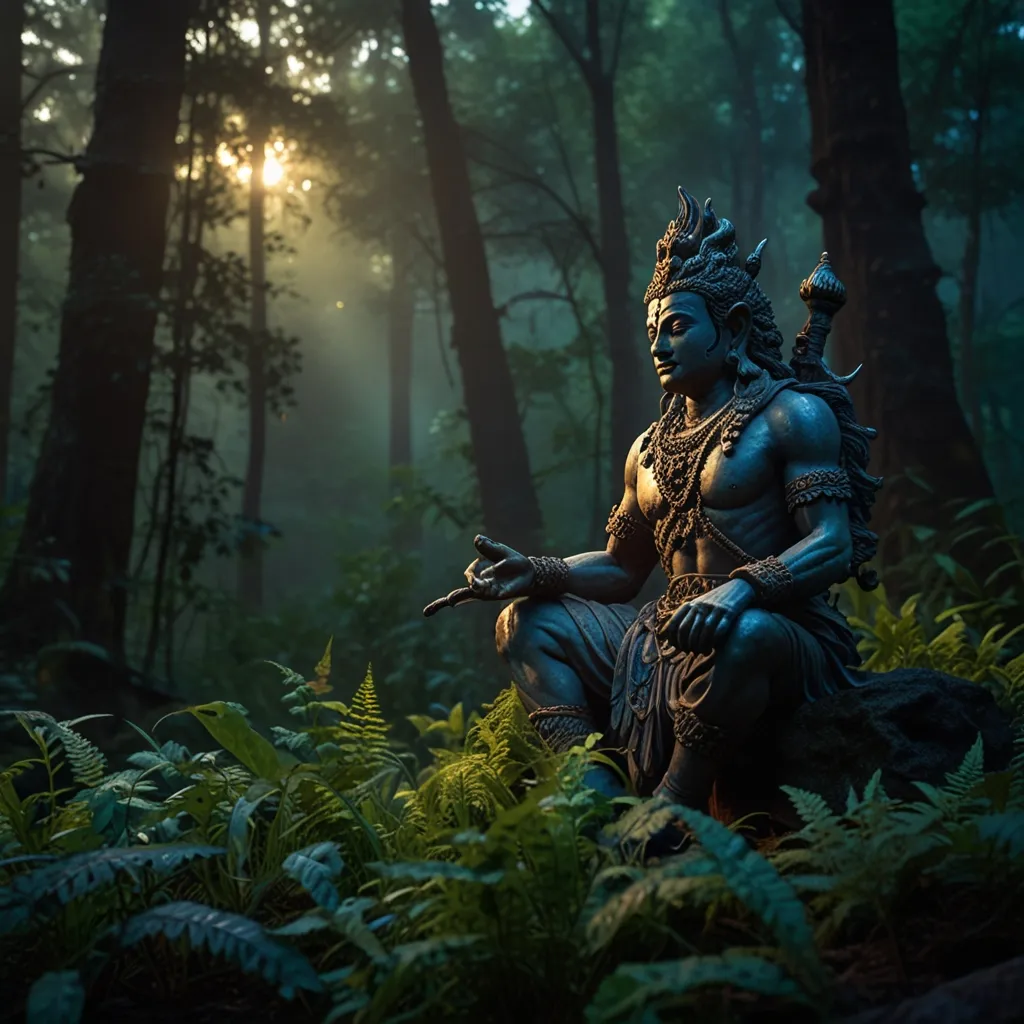In the vast and intricate landscape of the Mahabharata, one of the most compelling themes is the interplay between dharma and duty, a delicate balance that often plunges characters into profound ethical dilemmas. These conflicts are not merely philosophical abstractions but lived experiences that test the characters’ resolve, wisdom, and ultimately, their humanity.
At the heart of the Mahabharata lies the epic battle of Kurukshetra, a war that is as much a clash of arms as it is a clash of moral principles. Here, we find Arjuna, the great warrior, standing at the threshold of this battle, his heart heavy with the weight of his duty. As he gazes out at the enemy lines, he sees not just foes, but family, friends, and mentors. The prospect of killing those he loves and respects is too much to bear, and he falters.
This moment of hesitation is more than just a personal crisis; it is a universal one. Arjuna’s dilemma speaks to the core of what it means to follow one’s duty, especially when that duty conflicts with personal feelings and moral instincts. His charioteer, Krishna, intervenes with words that are both comforting and challenging. Krishna’s counsel, as captured in the Bhagavad Gita, is not a simplistic solution but a nuanced exploration of the nature of duty and the path to righteous action.
Krishna’s advice to Arjuna underscores the concept of dharma, a term that is often translated as duty or righteousness but encompasses much more. Dharma is the moral order of the universe, the principle that governs the actions of all beings. Yet, it is also highly personal and context-dependent. For Arjuna, his dharma as a warrior is to fight, but this conflicts with his personal dharma as a son, brother, and friend.
The story of Bhishma, another central figure in the Mahabharata, offers a different yet equally compelling perspective on the tension between duty and personal sacrifice. Bhishma’s vow of celibacy, taken to ensure his father’s happiness, is a profound act of self-denial. However, this vow also leads to a series of unforeseen consequences that shape the destiny of the kingdom. Bhishma’s unwavering adherence to his promise means he cannot claim the throne, leading to a succession crisis that ultimately contributes to the war.
Bhishma’s dilemma highlights the complexities of duty and the unintended consequences of our actions. His commitment to his vow is admirable, yet it also illustrates how rigid adherence to a principle can sometimes lead to harm. This is a lesson that resonates deeply in modern times, where the rigidity of rules and laws can often overlook the nuances of human situations.
Yudhishthira, the eldest of the Pandavas, is another character whose story is woven around the theme of duty and honesty. His commitment to truthfulness is legendary, but it is also tested in ways that challenge our conventional understanding of right and wrong. In one of the most poignant episodes, Yudhishthira is forced to answer the Yaksha’s questions truthfully, even if it means risking the lives of his brothers. This decision is a stark reminder that honesty is not always easy or straightforward.
Yudhishthira’s story also delves into the concept of dharma in its broader sense. For him, dharma is not just about personal honesty but also about social duty and the maintenance of cosmic order. His refusal to cheat or deceive, even when it would be advantageous, is a testament to his character. However, it also raises questions about the practicality of such a stance in a world where deception and cunning are often rewarded.
Karna, the tragic hero of the Mahabharata, presents perhaps the most poignant example of conflicting obligations. Born to Kunti but raised by a charioteer, Karna’s identity is a complex mix of his true parentage and his adopted family. His loyalty to Duryodhana, who befriended him when others shunned him, is a powerful bond that transcends mere friendship. Yet, this loyalty also places him in direct conflict with his biological family, the Pandavas.
Karna’s story is a heart-wrenching exploration of what it means to be loyal and what it means to be true to oneself. His choice to stand by Duryodhana, despite knowing his true parentage, raises profound questions about identity and duty. Is duty solely about fulfilling obligations to those who have helped us, or is it also about recognizing and honoring our true selves?
These ethical dilemmas in the Mahabharata are not isolated incidents but part of a larger narrative that explores the human condition. They remind us that moral decisions are rarely black and white but are instead shaded by the complexities of human relationships, personal histories, and societal expectations.
In modern times, these dilemmas continue to resonate deeply. We often find ourselves caught between competing obligations – to family, to friends, to society, and to our own sense of what is right. The Mahabharata offers no easy answers but instead provides a mirror to our own moral struggles. It reminds us that duty and dharma are not static concepts but dynamic forces that shape and are shaped by our actions.
The Mahabharata also underscores the importance of self-reflection and moral autonomy. The characters are not mere puppets of fate but individuals who make choices that have consequences. Arjuna’s decision to fight, Bhishma’s adherence to his vow, Yudhishthira’s commitment to truth, and Karna’s loyalty to Duryodhana – all these choices are made in the face of profound moral crises.
In the end, the Mahabharata teaches us that moral decision-making is an art rather than a science. It requires wisdom, compassion, and a deep understanding of the complexities of human nature. The epic does not provide a formula for resolving ethical dilemmas but instead invites us to engage with these questions on a personal level.
As we navigate the complexities of our own lives, the Mahabharata stands as a timeless guide, reminding us that duty and dharma are not abstract concepts but living, breathing principles that guide us towards a more just and compassionate world. It is a reminder that our choices, however difficult they may be, are what define us and shape the world around us.
